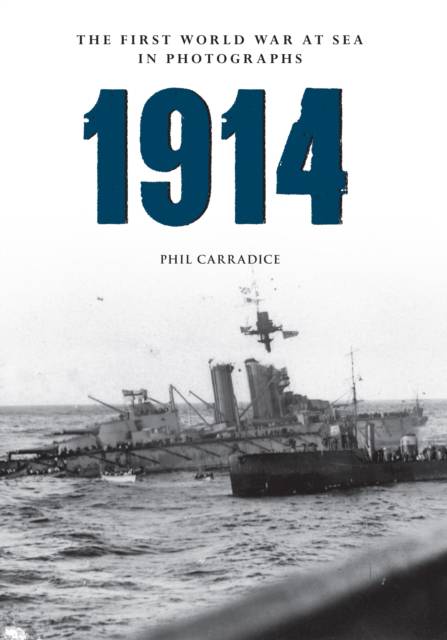
Bedankt voor het vertrouwen het afgelopen jaar! Om jou te bedanken bieden we GRATIS verzending (in België) aan op alles gedurende de hele maand januari.
- Afhalen na 1 uur in een winkel met voorraad
- In januari gratis thuislevering in België
- Ruim aanbod met 7 miljoen producten
Bedankt voor het vertrouwen het afgelopen jaar! Om jou te bedanken bieden we GRATIS verzending (in België) aan op alles gedurende de hele maand januari.
- Afhalen na 1 uur in een winkel met voorraad
- In januari gratis thuislevering in België
- Ruim aanbod met 7 miljoen producten
Zoeken
€ 26,95
+ 53 punten
Omschrijving
The arms race that led to the First World War started in 1897 at the Spithead Naval Review, when Kaiser Wilhelm saw the might of Britain's Navy. He wanted to equal or better the fleet of Britain, and set about a huge building programme of warships. By 1914, tensions in Europe were at a breaking point and, in August, erupted into what would become the first truly global conflict. From almost the first day of the war, as merchant ships scuttled to safe havens, the war at sea saw ship against ship and submarine against ship. Hastily converted merchantmen became auxiliary cruisers, fitted with guns and ready for action. August saw the loss of the Kaiser Wilhelm der Grosse, one of Germany's crack ocean liners, off the coast of Africa; October, the loss of Britain's dreadnought battleship HMS Audacious to a mine; and December saw the Battle of the Falklands and a German attack on the coastal towns of Scarborough, Whitby and Hartlepool. Submarines quickly became a menace in the Mediterranean, English Channel and North Sea, slowly beginning to starve Britain into submission. In August, it was thought the war would be over by Christmas; by December everyone knew they were in for a long, hard slog. The naval war would be one of attrition and one that would ultimately lead to the surrender of Germany's navy in 1918.
Specificaties
Betrokkenen
- Auteur(s):
- Uitgeverij:
Inhoud
- Aantal bladzijden:
- 144
- Taal:
- Engels
- Reeks:
Eigenschappen
- Productcode (EAN):
- 9781445622330
- Verschijningsdatum:
- 15/05/2014
- Uitvoering:
- Paperback
- Formaat:
- Trade paperback (VS)
- Afmetingen:
- 163 mm x 234 mm
- Gewicht:
- 430 g

Alleen bij Standaard Boekhandel
+ 53 punten op je klantenkaart van Standaard Boekhandel
Beoordelingen
We publiceren alleen reviews die voldoen aan de voorwaarden voor reviews. Bekijk onze voorwaarden voor reviews.









